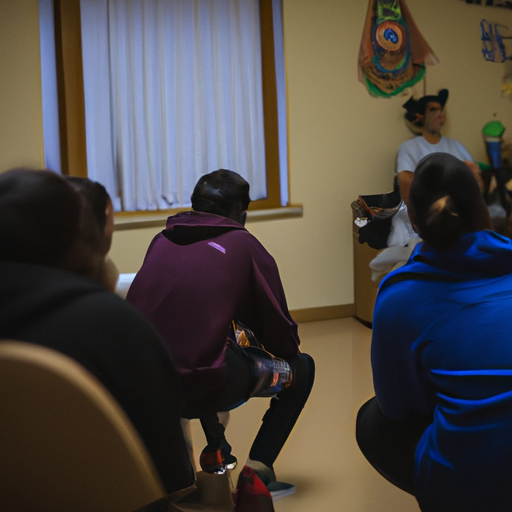Today, I have some essential insights to share with you based on a deep-diving article by APTN News .
Context: Indigenous Communities and the Opioid Crisis
Let’s start with a sobering fact: Indigenous communities in Canada have been disproportionately impacted by the opioid crisis. This comes with a wave of dreadful side-effects like a rise in crime rates, an increase in homelessness, and, tragically, a substantial number of premature deaths.
Looking beyond the headlines and statistics, we find real, individual human beings struggling with their health, well-being, and the normalization of drug-use cultures in their struggling communities. It’s often in these contexts that intergenerational traumas flourish and the addiction cycle perpetuates.
Turning the Tide: The Waseskun Healing Center Approach
The Waseskun Healing Center, located in Quebec, serves indigenous teens caught in the opioid crisis. They’ve recognized the need for a revamp in their programs, and are taking a more holistic approach to tackle the issue. Their approach underscores the fact that it’s not just about the drugs; it goes deeper into addressing the factors that lead to addiction.
A Shift Towards a Holistic Approach
The center, traditionally operating as a halfway house, realized its program needed a radical overhaul. They shifted their approach towards a holistic model of treatment that focuses on the whole individual, their history, their trauma, and their potential future. The renewed program embraces traditional spiritual practices, physical exercise, and group therapy sessions, providing a comprehensive and culturally-orientated approach to recovery.
- Traditional Spiritual Practices: Reconnecting Indigenous youth with their roots goes a long way in the healing process. The staff works on rekindling a sense of belonging among the teens.
- Physical Exercise: Regular exercise has many proven mental health benefits, and is a crucial factor during rehabilitation. The center incorporates gym workouts in the program.
- Group Therapy: These sessions create a community of support among peers. It enables emotional offloading and fosters resilience during tough times.
Opioid Class Action: A Weapon Against the Crisis
We’re also seeing movements at the political and legal levels to help curb the opioid crisis. One such initiative is the opioid class action, wherein governments and litigants are pushing for a collective legal response against opioid manufacturers and distributors whose actions have been deemed as contributing factors. The aim, in part, is to use any recoveries from the lawsuits to fund treatment programs and prevention strategies.
Closing Thoughts
The opioid crisis in Canada is a devastating issue that urgently needs to be addressed. We need a multifaceted strategy to fight it, embracing healthcare, legal, community-based and wellbeing-focused solutions. The Waseskun Healing Center’s revamp serves as an inspirational example of that holistic perspective, showing us the way forward.
In times of crisis, it’s often the small changes that make a big difference. Whether it’s carrying out a naloxone kit for emergencies, supporting a local rehab center, or engaging in policy advocacy, we can all contribute to ending this crisis. Let’s come together, become more informed and proactive, drawing on articles like these, and make a real difference.


